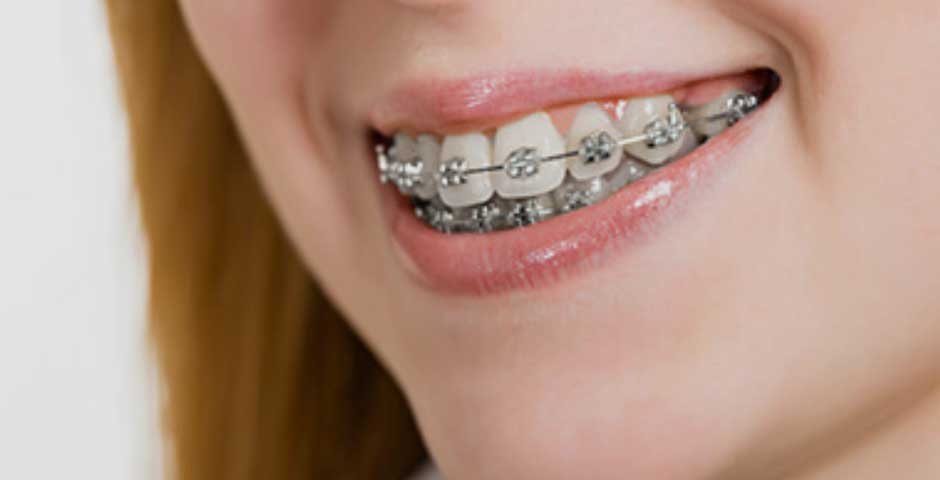Have you ever heard of the terms “overbite” or “buck teeth” but weren’t sure what they meant? An overbite is a type of malocclusion where the upper front teeth stick out further than the lower front teeth, causing difficulties when biting or speaking, and even jaw pain or headaches. In this discussion, we’ll delve deeper into what causes overbites, the symptoms they can cause, and the various treatments available to correct them.
What is an overbite or buck teeth?
When someone has an overbite, it means their upper front teeth stick out further than their lower front teeth. This can cause difficulties when biting or speaking, and even lead to jaw pain or headaches.
Overbite is actually a type of malocclusion, which just means misaligned or crooked teeth. While some people use the term “overbite” to describe upper teeth that stick out past the lower teeth, orthodontists use it to refer to the overlap of the lower teeth with the upper teeth. Severity is determined by how much the top teeth extend beyond the lower teeth.
In many cases, an overbite can be corrected with orthodontic treatment such as braces or clear aligners. According to this dentist in Seabrook NH, early assessment by a dental professional can help prevent complications and improve both function and appearance. Addressing an overbite not only enhances your smile but also supports long-term oral health.
What causes overbites?
Overbites are often attributed to genetics, but they can also be acquired during childhood due to certain habits and behaviors. Some of the common causes of overbites in childhood include:
- Prolonged thumb-sucking or nail biting
- Using a pacifier beyond 3 years old
- Prolonged use of a bottle
- Tongue thrusting
- Teeth grinding or bruxism
- Chewing on hard objects
These behaviors can lead to an abnormal growth pattern of the jaw and affect the positioning of the teeth. As a result, it is important to address these habits early on to prevent the development of an overbite.
Symptoms and problems caused by overbites
Overbites can cause a range of symptoms and problems, from mild to severe, that can impact your daily life. Here are some of the common symptoms:
- Difficulty fully opening or closing the mouth
- Speech challenges
- Discomfort while eating
- Increased risk of injury to teeth
- Jaw pain
- TMJ Disorder
- Headaches
- Neck Pain
If you are experiencing any of these symptoms, it is important to consult with your orthodontist to determine if an overbite may be the underlying cause.
How do we treat overbites?
Traditional Braces
Metal braces have been around for quite some time and have been successful in treating overbites. These braces use wires and metals to help straighten teeth and move them into their proper position. But, some people might shy away from metal braces because of their appearance and discomfort.
Clear Aligners
Invisalign has become a popular alternative to traditional metal braces because it offers a discreet appearance that metal braces cannot provide. The aligners are made of clear plastic, which is molded to fit the shape of your teeth, similar to a retainer. It is also said to be more comfortable than metal braces, as it does not have wires that create friction on the tissue of your mouth. However, it is important to note that Invisalign may not be suitable for treating severe cases of overbite. If your overbite is severe, your orthodontist may recommend other treatments.
Lingual Braces
Lingual braces, like traditional metal braces, are an effective way to treat overbite. However, instead of being placed on the front of your teeth, lingual braces are placed on the back, making them virtually invisible.
These braces use wires and brackets to apply pressure to specific teeth, gradually moving them into the desired position. This process can take some time, but the end result is a beautiful smile with improved bite alignment.
If you are someone who is concerned about the appearance of traditional braces, lingual braces may be the perfect solution for you. They offer the same effective treatment as traditional braces but are much less noticeable, making them a popular choice for many adults.
Surgery
If you have a severe case of an overbite that cannot be corrected with traditional braces or Invisalign, your orthodontist may recommend surgery. This involves repositioning your jaw or any other bones that need to be adjusted to fix your overbite. But people often try to avoid them because they are too invasive and cost more.
It’s understandable that most people would prefer to avoid surgery, but the good news is that there are insurance plans out there that may cover the cost of the surgery. You can also talk to your orthodontist to explore your options and find the best solution for your specific needs and budget.
Kumra Orthodontic is a committed provider of the best orthodontic care, and they also take the time to understand the needs of their patients. Their orthodontist in Northern, VA, has years of irrefutable experience in the field, and they are dedicated to helping patients overcome their orthodontic issues. Don’t let the symptoms of your overbite hold you back any longer. Contact them today to discuss possible treatment options.
Say goodbye to your overbite!
Remember that ignoring an overbite can cause various issues and symptoms that can negatively impact your daily life. You must take action by considering options such as traditional braces, clear aligners, lingual braces, or surgery to prevent potential dental problems and improve your overall oral health.
It’s always a good idea to seek the advice of your orthodontist, who can help you determine the best treatment for your overbite. Don’t hesitate to take the first step in addressing your overbite and taking control of your oral health.






